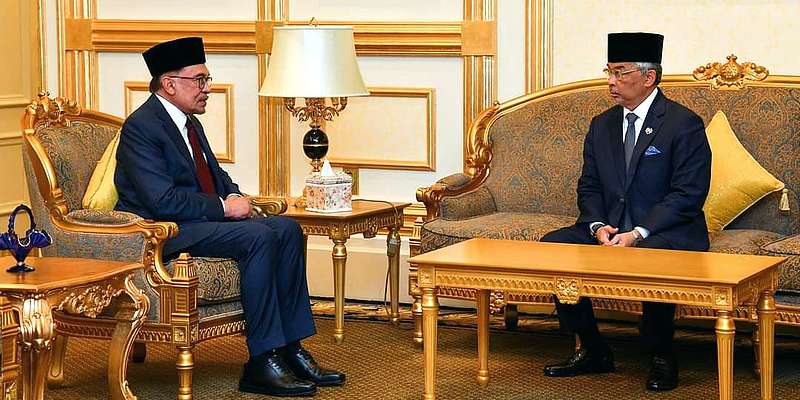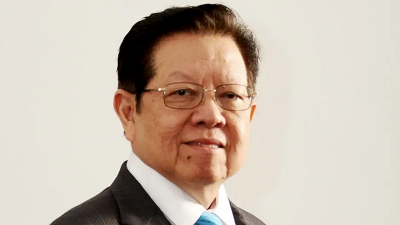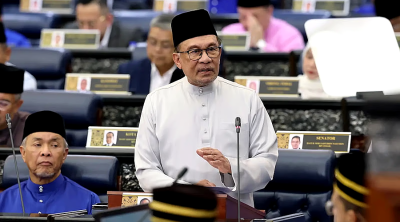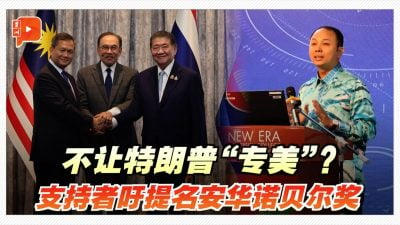
We must all be aware that the monarchy steered Malaysia in a positive direction many thought was not possible.
We have steered clear (for the time being) of becoming a conservative Islamic state, for the opportunity to become a progressive society.
Over the years, the monarchy has been privately criticized. However, the Constitution specifies a number of roles for the various state Sultans, one Raja, state governors, and the Yang di-Pertuan Agong or king selected every five years by the Conference of Rulers.
The monarchy plays a special role in Malaysian politics. This is to advise, adjudicate, and direct the prime minister, cabinet and other political leaders when forming a government. This, the Agong did.
Under Article 44 of the Constitution, the parliament consists of the Yang di-Pertuan Agong, Dewan Rakyat and Dewan Negara. Thus, this concept of the king in parliament has developed into some important conventions which have extended the powers of the Agong.
With political instability over the last couple of years culminating in the recent general election, His Majesty Sultan Abdullah Sultan Ahmad Shah has extended the methodology used in his role in the selection of prime minister, and thus the government.
The Agong has shown his rigor in the selection process of prime minister in a unique way to other Westminster democracies within the Commonwealth.
Within his discretionary power to select the prime minister has come the power of persuasion to advise, and even direct.
This distinctly has some origins from the long history of the institution of the Sultan dating back to the old Malay river states more than 600 years ago.
This very much differs from the concepts within a “western democracy” where the people are deemed to hold sovereignty.
Politicians over the last three years have shown acceptance of the Agong’s edicts, cementing these conventions into the political system.
The Agong utilized these conventions in his selection of Anwar Ibrahim as prime minister, after the election returned no decisive winner.
The Malay rulers are not ignorant about the stakes of this election. They have seen the political instability since the Sheraton Putsch back in February 2020.
They have also seen the political rise of Islam. They have widely discussed this issue around Malaysia’s “establishment.”
They knew what would happen if Malaysia was governed by a conservative Islamic government that wanted an Islamic state at the cost of the country’s current quasi-Westminster democracy.
Nobody within the “Malay establishment” wants an Islamic state. They want Islam and bumiputra status according to the Constitution.
Most importantly, the ruling families don’t want a government that is disrespectful to the monarchy, as was seen with former religious affairs minister Idris Ahmad’s snubbing of the advice the Sultan of Selangor gave him over the Bon Odori festival last June.
This was a direct challenge to Royal Prerogative which the rulers fear would increase under a PAS-led government.
PAS is sympathetic to the idea of a state led by the Ulama in the style of Iran.
Further, Muhyiddin’s rejection of the Agong’s edict to become part of a unity government left very little choice.
None of the ruling families wanted a government that is disrespectful and potentially hostile towards the institution.
Thus, the Agong shaped his approval of Anwar to form a government, providing supplementary edicts to other parties to support a unity government based on the clear visions of a future Malaysia; being a progressive nation, or conservative Islamic state.
An Islamic state is not the ruling families’ view of a future Malaysia.
In framing their approach to government, the issue of corruption ran secondary to conservative Islam running as the prime ideology of government.
For this reason, Anwar has been given an opportunity to govern. Zahid was enthusiastic over the Agong’s edict and made the new coalition happen. Sarawak’s GPS also towed the royal line, creating much goodwill with the “Malay establishment” and rulers.
The Agong’s decision didn’t come without some stipulations.
Tengku Zafrul somehow got himself into the deal after the fact. This issues regarding future court cases are left in the hands of the rulers. They know what is the best from their vantage point to do. For this group there are certain issues more important than the criminal code.
Based upon this royal edict paradigm, it shouldn’t be too difficult to estimate the extent Anwar will be free to reform the government.
Anwar has known for a number of years the importance of good relations with the ruling families. Anwar is clearly their man.
This government will ironically be the closest to what a Malay government should resemble. It’s going to be closer to Tunku Abdul Rahman’s vision of Malaysia than Mahathir Mohamed’s vision.
There will be some shortcomings. No local elections, no change in Sosma, no social liberation, and no secularization of government.
However, expect more rakyat-orientated policies, a more targeted foreign policy to fulfill Malaysia’s direct interests, more inclusion of Sabah and Sarawak, and a less conservative form of Islam promoted.
Murray Hunter’s blog can be accessed here.

(Murray Hunter has been involved in Asia-Pacific business for the last 40 years as an entrepreneur, consultant, academic and researcher. He was an associate professor at Universiti Malaysia Perlis.)
ADVERTISEMENT
ADVERTISEMENT








































